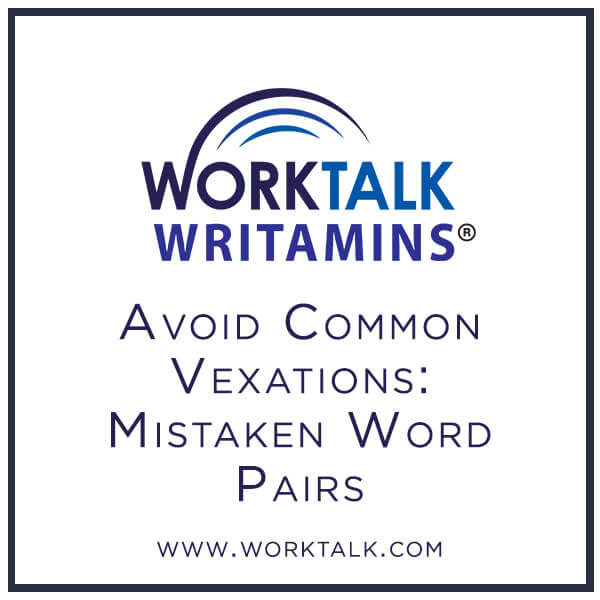
[4-minute read]
Quick: What is a noun? Person, place, or thing (or concept)
What is a verb? Action or being.
We just clarified an essential truth about writing: Nouns, by definition, sit still until they encounter verbs. Verbs are the engines of language. Of course, nouns are necessary; they form the subjects of our sentences. What we’re trying to eliminate are unnecessary nouns or nouns that mask your impact. Consider the following sentences:
Focusing on Nouns
- Give me a call if the need arises.
- He will perform an analysis of it soon.
- If you feel a need to use the copy machine, please turn it off when your usage is complete.
Focusing on Verbs
- Call me if you need me.
- He will analyze it soon.
- If you need to use the copy machine, please turn it off when you are done.
What do we notice about the sentences that focus on verbs and eliminate needless nouns?
• They are shorter.
• They are more direct.
• They feel more authentic.
Where Do Needless Nouns Hide?
The process of changing verbs or adjectives into nouns is called nominalization. Some unnecessary nouns have suffixes, or endings, that transform them. Others are words that can be used as nouns or verbs. For example,
Words that can be used as nouns or verbs
Words such as request, love, work, and use are in this group.
• As per your request, the documents are enclosed.
• The documents you requested are enclosed.
• How much love do you have for her?
• How much do you love her?
Nouns that end with -ation
• We wish to offer our congratulations.
• We congratulate you.
• We will give careful consideration to your proposal.
• We will consider your proposal carefully.
Nouns that express actions.
Words like analysis, failure, refusal, and removal fall into this category.
• Failure to replace the item will result in a fine.
• If you fail to replace the item, you will be fined.
• The removal of the item must take place by Thursday.
• You must remove the item by Thursday.
Nouns that end in -ing (gerunds) These words are quite common.
• Running on the deck is prohibited
• You may not run on the deck.
• Editing the document was difficult.
• It was difficult to edit the document.
Nominalizations are Not All Bad
If you want to create a sense of abstraction or distance from your reader, then nominalizations are your pals. They blur images in the reader’s mind and make him or her a bit vague about what you are saying. As we say in the Worktalk training, “Nouns breed distance; verbs bring connection.”
These Nouns are Sneaky!
As you can see, needless nouns are like weeds, sprouting everywhere to shunt the growth of vivid, vibrant verbs. Writers must keep a keen eye out for nominalizations in all their forms and ask themselves whether the noun form is necessary or if it can be replaced by an action word.
Giving careful consideration to the writing of documents without the use of nominalizations when you feel a need for expression of your thoughts will lead to an increase in the readability of your writing.

©2020 Elizabeth Danziger All rights reserved
Take me to your leader! Communication woes drain the lifeblood from an organization. Connect me with your decision-makers and see how Worktalk can transform communication in your world. Contact me at lizd@worktalk.com or 310.396.8303. You can also book through www.calendly.com/worktalk.
